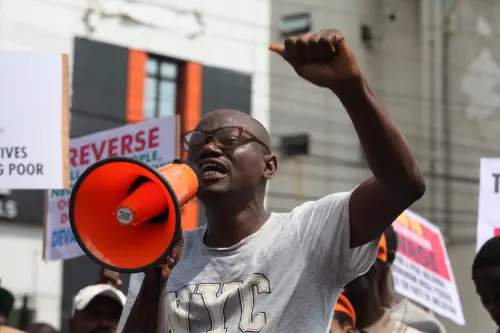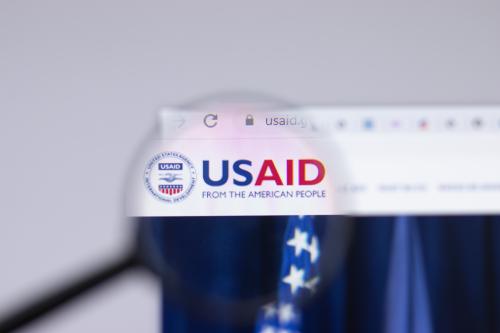Whatever the outcome of Brazil’s presidential election on October 3, the government is unlikely to make any fundamental changes to its policy imperatives of macroeconomic stability and social policy, which have put the country on the road to good governance. The two main presidential candidates, Dilma Rousseff of the Workers’ Party (PT) and Jose Serra of Brazil’s Social Democracy Party (PSDB), represent different political positions with distinct styles, personalities, leadership and approaches. However, it is very likely that as president, both front-runners would maintain the core macroeconomic stability and social policies currently in place.
Since 1994, Brazil’s government has been highly constrained both institutionally and electorally to keep macroeconomic stability and inflation under control. Recently, it has also lost the freedom to eliminate poverty alleviation policies like the bolsa família cash transfers program. Therefore, social policies in Brazil are no longer residual policies. Just as macroeconomic stability became a policy imperative in Brazilian politics, so too has social policy.
In Brazil, strong presidential powers have generally allowed the president to initiate, pursue and approve much of his/her policy agenda. While this may seem perilous given Latin America’s history with strong presidents, Brazilian political institutions provide two sets of safeguards against abuse of those powers.
First, the president has incentives to pursue sensible macroeconomic policies since the electorate sees the president as responsible for outcomes related to basic issues such as a strong economy, growth and stabilization. Given the strong presidential powers, failure in these areas cannot be credibly blamed on other political players and branches of government or even external shocks in the international market. Therefore, the policymaking “game” is one in which the president has an overriding incentive to maintain stable prices and service its debt, which requires running primary budget surpluses. It was no coincidence that, after being defeated three consecutive times, President Lula could be finally elected in 2002 only after making a public credible commitment in favor of the real plan.
The second institutional safeguard is the ability of several other political and non-political actors, such as Congress, the Judiciary, governors of states, public prosecutors and the media, to check the president’s actions in different ways. Thus, if an incompetent or ill-intentioned president were to come to power in Brazil, strong presidential powers would not mean a blank check to pursue misguided policies or behaviors.
As previously mentioned, providing economic opportunity to the poor with large-scale programs, such as bolsa familia, noncontributory pensions and more access to credit, is no longer a residual policy in Brazil. Social policies are as important as macroeconomic stability and can have significant electoral implications. For example, the campaign platform of the main opposition candidate for the presidency, Jose Serra, is to double the number of families assisted by the bolsa família.
According to ActionAid, Brazil for the second consecutive year is a leading country, “who really fights hunger” among developing countries as whole. According to the United Nations’ Millennium Development Goal (MDG) Monitor, of the eight MDGs, Brazil has already achieved four: eradicate extreme poverty and hunger, achieve universal primary education, promote gender equality and empower women, and combat HIV/AIDS, malaria and other diseases. The other four goals were considered very likely to be achieved: reduce child mortality, improve maternal health, ensure environmental sustainability and develop a global partnership for development. Although the real achievement of some of those goals is questionable, it is important to keep in mind that these are no trivial accomplishments in a society where macroeconomic mismanagement and inequality were for decades the most salient features.
Bolsa família proved very successful not only combating inequality but also in winning votes in President Lula’s reelection in 2006 and boosting votes for his successor Dilma Rousseff. However, the electoral base who voted Lula to office in 2006 was not the same as the one that voted for him in 2002; the PT’s traditional electoral base was mostly formed by better educated and high income voters in the relatively urban and industrial sectors in Brazil’s south and southeast. However, Lula’s social programs— especially the conditional cash transfer scheme that targets low-income families— were a likely key variable in explaining his good electoral performance among low-income voters. Hunter and Power (2007) show the impact of targeted social policy on voter choice by correlating election results with the implementation of the bolsa família program at the sub-national level. They demonstrate that between 60 and 85 percent of votes from the impoverished north and northeast of the country went to Lula. Bolsa família became the centerpiece of social policy and the number of Brazilian families covered rapidly climbed to more than 12.7 million or about 50.8 million people; more than two thirds of whom earned less than $33.00 a month. Moreover, the program was implemented at the relatively low cost of 2.5 percent of all government expenditure (Hunter and Sugiyama 2009).
These poverty alleviation policies along with macroeconomic stability policies have led to the emergence of a “new middle class” in Brazil. According to Neri (2010), the Brazilian middle class, families earning between R$1,064 and R$4,561 per month, represented 42 percent of the population in 2003. Today that share is 52 percent and is expected to reach 55 percent in 2014. The Gini coefficient that measures Brazil’s income inequality suggests that millions have moved out of poverty and entered the middle class each year. It suggests that there will be more and more consumers in the Brazilian market, which in turn will have the potential to attract even more international investors.
Between 2001 and 2007, Brazil experienced a sharp and continuous decline in income inequality at an average rate of 1.2 percent per year. The per capita income of the poorest groups grew fast and substantially in this period despite modest economic growth of overall per capita income. This decline in inequality and poverty, however, should not only be interpreted as a result of poverty alleviation policies via public transfers. Barros et al. (2010) argue that changes in labor income have played an equally important role. In addition, they stress that the decline of inequality has to do with the accelerated expansion of access to education during the 1990s.
This set of political and economic institutions in Brazil has evolved in a manner that has not only convinced top credit rating agencies to raise Brazilian debt to “investment grade,” but also led Brazil to reach the status of countries with high human development index. The combination of macroeconomic stability in conjunction with economic growth and social protection has generated massive popular support for the Lula’s administration. Therefore, whoever becomes his successor will not have the political and electoral incentives to make comprehensive changes to Brazil’s two main policy imperatives. While a new president might take a different road and make decisions that could prevent Brazil from developing as quickly, he/she will not be able to take the country backwards. The incentive-structure of Brazil’s political institutions is just too strong and will continue to push Brazil in a similar direction.
References:
Barros, Ricardo, Mirela de Carvalho, Samuel Franco, and Rosane Mendonça (2010) “Markets, the State, and the Dynamics of Inequality in Brazil.” In Declining Inequality in Latin America: A Decade of Progress? eds. Luis F. López-Calva and Nora Lustig, Brookings Institution Press, Baltimore, 134-174.
Hunter, Wendy and Power, Timothy (2007) “Rewarding Lula: Executive Power, Social Policy, and the Brazilian Election of 2006” Latin American Politics and Society 49 (1): 1-30.
Hunter, Wendy and Sugiyama, Natasha (2009) “Democracy and Social Policy in Brazil: Advancing Basic Needs, Preserving Privileged Interests” Latin American Politics and Society, 51 (2): 29-58.
Neri, Marcelo (2010) The New Middle Class in Brazil: The Bright Side of the Poor, Rio de Janeiro, Fundacao Gerulio Vargas Press.
The Brookings Institution is committed to quality, independence, and impact.
We are supported by a diverse array of funders. In line with our values and policies, each Brookings publication represents the sole views of its author(s).



Commentary
Op-edThe Impact of Brazil’s Presidential Elections: Different Roads, Similar Direction
September 28, 2010